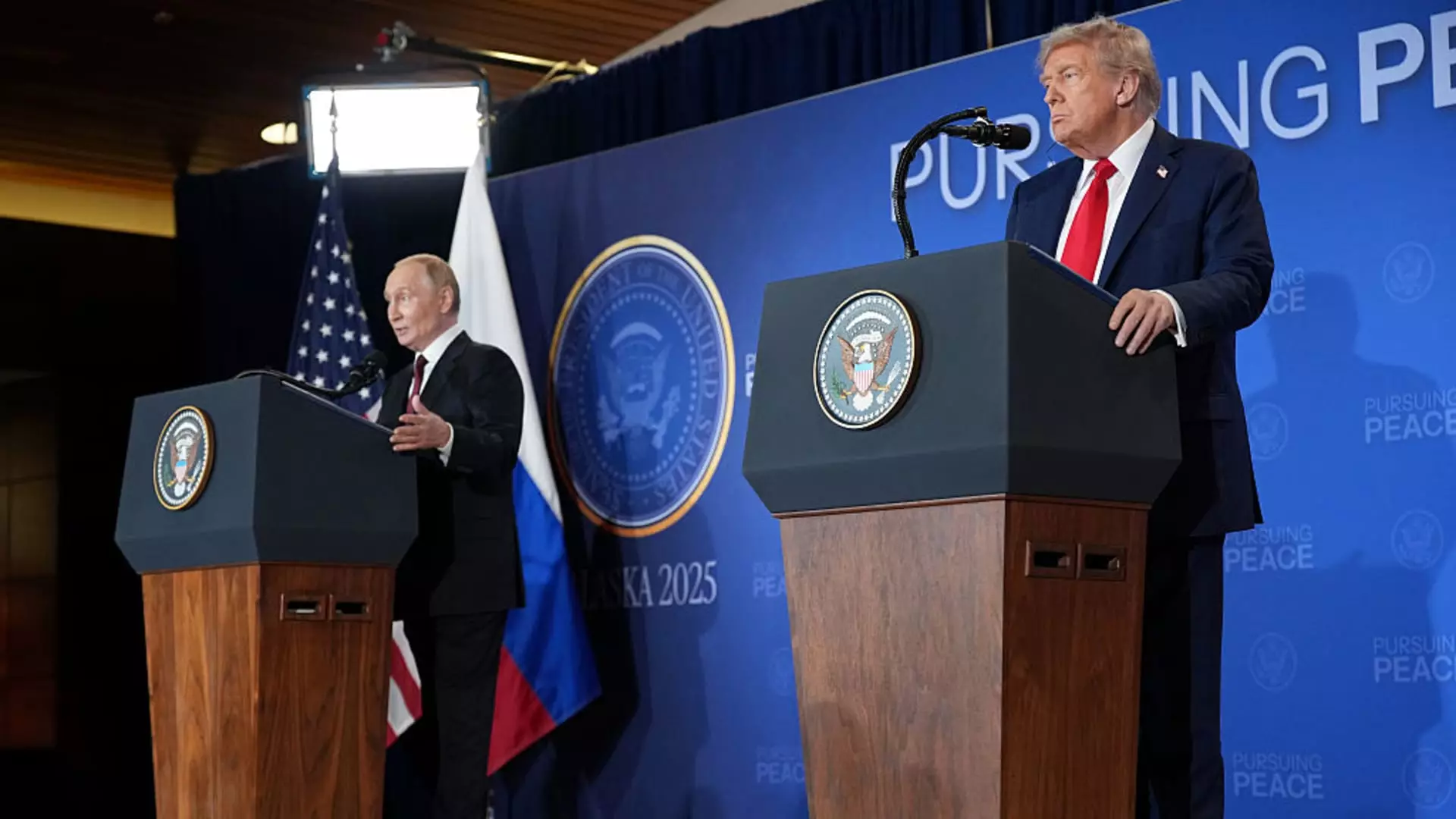The recent summit between Donald Trump and Vladimir Putin exemplifies the growing disconnect between superficial diplomatic gestures and tangible progress. While Trump described the meeting as “very well,” there was little evidence to suggest a genuine push toward ending the devastating conflict in Ukraine. Instead, what we witnessed was a complex dance of rhetoric that only deepens skepticism about the United States’ commitment to meaningful peace. The absence of a concrete ceasefire or peace agreement reveals a troubling tendency: leaders often prioritize optics over substantive change, undermining the very diplomatic processes intended to foster stability.
Power Dynamics and Escalating Rhetoric
The differences in tone and messaging among the key players reflect a broader struggle for influence. Trump’s emphasis on negotiating a comprehensive peace agreement as opposed to a fragile ceasefire signals an appetite for long-term solutions. However, his approach appears disconnected from the immediate needs and realities of Ukraine’s sovereignty. European allies’ insistence on Ukrainian inclusion underscores a shared concern that external powers—particularly those with vested interests—might be hijacking the narrative for strategic gains. Meanwhile, Russia’s narrative of victory and a new security architecture hints at a dangerous arrogance that only widens the chasm between conflicting parties, risking an escalation rather than resolution.
The Role of Leadership in Shaping or Destroying Peace
Powerful leaders often present themselves as champions of international stability. Yet, their actions frequently serve entrenched interests that prioritize national or geopolitical advantage over human lives. Trump’s flirtation with Putin’s perspective, combined with European leaders’ cautious stance, reveals a troubling failure to uphold the core principles of diplomatic engagement: respecting sovereignty, promoting fairness, and seeking genuine peace. The neutral veneer masks underlying ambitions, and with top officials either sidelined or withholding essential participation, the prospect of an equitable resolution becomes increasingly remote.
This Is a Crisis of Leadership and Moral Clarity
At its core, this summit exposes a fundamental flaw in how global power is managed. When the focus shifts from fostering genuine peace to managing perceptions of strength, vulnerable populations bear the brunt of neglect. The ongoing Ukrainian crisis isn’t merely a regional conflict; it is a reflection of stagnating diplomacy driven by self-interest and vested power. For those seeking a more just and stable international order, the key question is clear: Are global leaders willing to confront their own biases, recognize the insidious influence of elitism, and prioritize human rights over strategic gains? Until genuine moral clarity replaces political ambiguity, peace remains an elusive ideal tainted by rhetoric and compromised diplomacy.


Leave a Reply